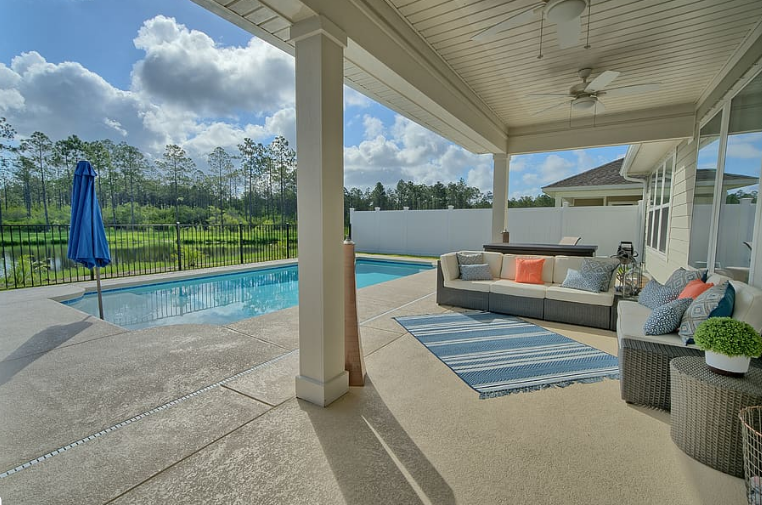For homeowners dreaming of a private oasis atop their property, a terrace pool presents an exciting option. Building a pool on a terrace can enhance a property’s appeal and provide a unique, elevated relaxation space. However, executing this dream requires detailed planning, professional assessments, and adherence to building codes. This article(https://interdecoracion.net/se-puede-construir-piscina-en-terraza) explores the feasibility, advantages, challenges, and considerations to keep in mind when planning a terrace pool.
Understanding Terrace Pool Feasibility
The most important factor to assess before construction begins is whether the terrace can structurally support the weight of a pool. This weight includes the water, the pool structure, and any occupants or surrounding furniture. Terrace pools also involve complex engineering work to ensure stability, safety, and compliance with building standards.
A licensed structural engineer should perform an evaluation to determine if the terrace is fit for the project. This assessment will reveal if reinforcements or modifications are necessary to carry the pool’s weight, and it will also inform essential design choices.
Key Benefits of a Terrace Pool
Installing a pool on a terrace comes with numerous advantages, including:
- Enhanced Property Value: A well-constructed terrace pool can increase the value of a property, making it attractive for potential buyers.
- Unique Aesthetic Appeal: A pool on a high-rise or terrace provides a stunning visual element that transforms the property.
- Privacy: Terrace pools offer a secluded space for relaxation, often free from neighbors’ views and disturbances.
- Year-Round Enjoyment: When paired with appropriate heating solutions, a terrace pool can be enjoyed across various seasons.
Challenges of Building a Terrace Pool
While terrace pools are visually appealing and beneficial, they present specific challenges, such as:
- Weight and Structural Limits: The load-bearing capacity of the terrace is a primary consideration. Even with modifications, there are limits to the weight the terrace can support, which can influence the pool’s size and depth.
- Waterproofing: Preventing water leakage is crucial, as it could damage the structure below and lead to costly repairs. A reliable waterproofing solution is essential, often involving specialized materials and membranes.
- Access for Maintenance: Pools require regular upkeep, and ensuring access to the terrace for maintenance equipment and personnel can be challenging.
- Increased Cost: Terrace pools are typically more expensive to install than traditional ground-level pools due to the engineering work, materials, and additional structural reinforcements required.
Essential Considerations for Terrace Pool Construction
If the terrace passes the structural assessment, here are some vital aspects to consider:
- Structural Reinforcement: Depending on the building’s capacity, structural reinforcements might be necessary to safely support the pool’s weight. Steel beams, columns, or additional supports can be integrated to strengthen the terrace.
- Pool Type and Size: Pools come in various shapes and sizes, such as plunge pools, lap pools, or smaller infinity pools. Opting for a lightweight, compact design can reduce strain on the structure.
- Drainage and Plumbing: Proper drainage is crucial to prevent overflow issues and water damage to lower levels. The plumbing system should include drains, filtration systems, and overflow solutions designed for rooftop settings.
- Local Building Codes and Permits: Most local authorities require permits for rooftop construction. Familiarizing yourself with these regulations will ensure that your pool project adheres to safety standards and legal requirements.
- Weatherproofing and Durability: The terrace pool should be built to withstand the local climate, particularly if exposed to extreme weather. Weather-resistant materials and protective coatings can help extend the pool’s longevity.
10 FAQs on Building a Pool on a Terrace
- Can any terrace support a pool?
Not every terrace is suitable; a structural evaluation is required to determine if modifications are needed. - What types of pools are ideal for terraces?
Smaller pools, such as plunge or lap pools, are better suited due to weight considerations. - How can I prevent water leakage?
Using high-quality waterproofing membranes and regularly inspecting for leaks can help prevent water damage. - What are the typical costs of a terrace pool?
Costs vary based on pool size, structural modifications, and materials but are generally higher than ground-level pools. - Are terrace pools safe?
With proper planning, construction, and safety features, terrace pools can be safe for use. - What permissions do I need?
Local building permits and authority approval are usually required for rooftop pools. - How often does a terrace pool need maintenance?
Terrace pools require similar maintenance to ground pools, with periodic cleaning and water treatment. - What materials are best for a terrace pool?
Lightweight, durable materials such as fiberglass or stainless steel are ideal for terrace pools. - How long does the construction of a terrace pool typically take?
It can take several months, depending on structural reinforcements and customizations. - Can a terrace pool be heated?
Yes, heating systems can be added, allowing year-round enjoyment.
Conclusion
Building a pool on a terrace is a unique project that offers a luxurious private space with scenic views. Although it involves significant planning, professional input, and adherence to structural requirements, the end result is a beautiful and functional addition to any home. By assessing feasibility, addressing challenges, and considering long-term maintenance, homeowners can create a stunning oasis above their property.
